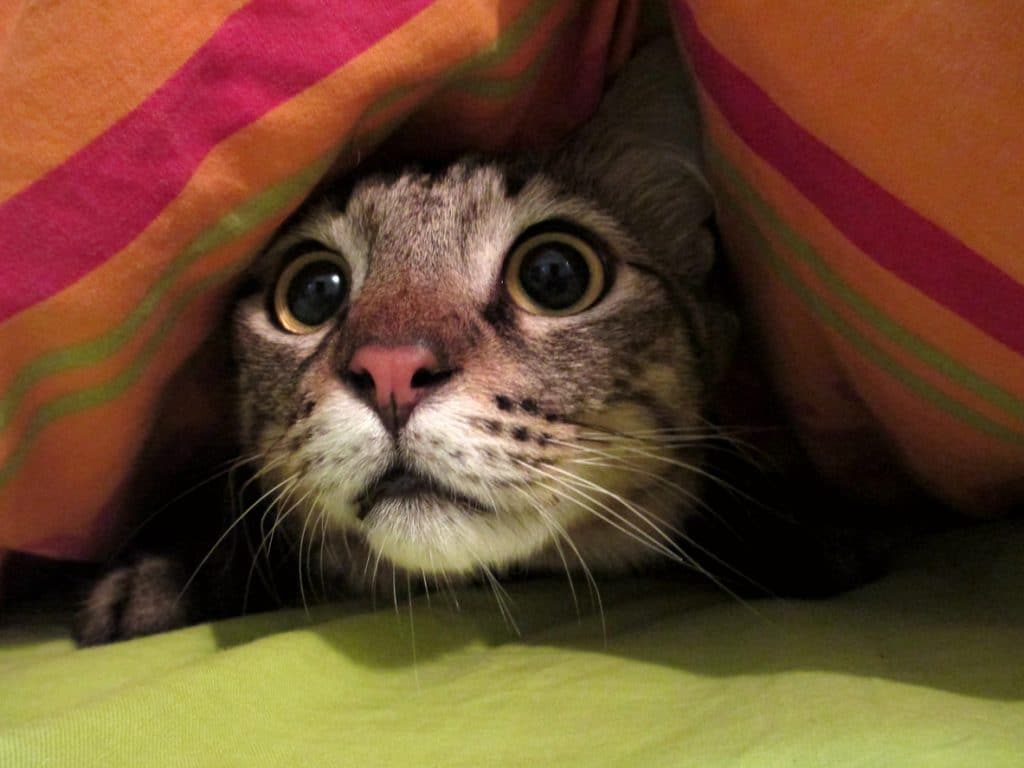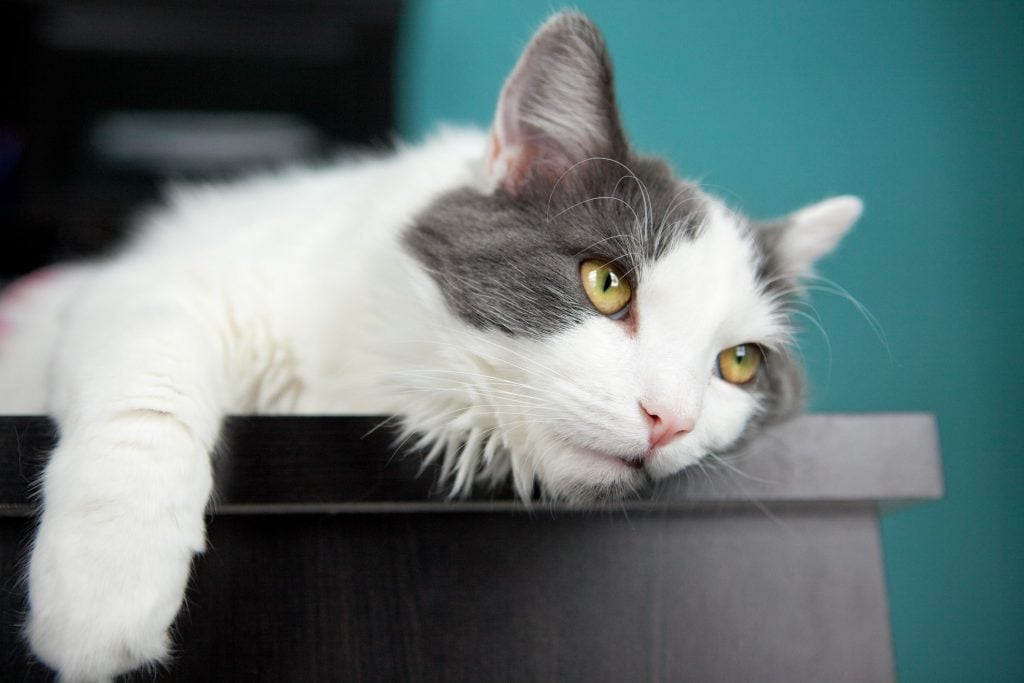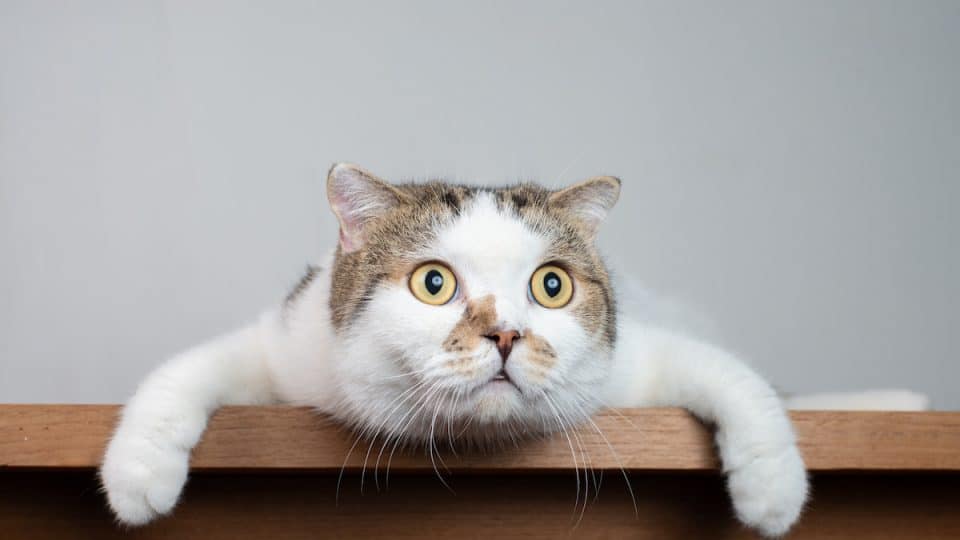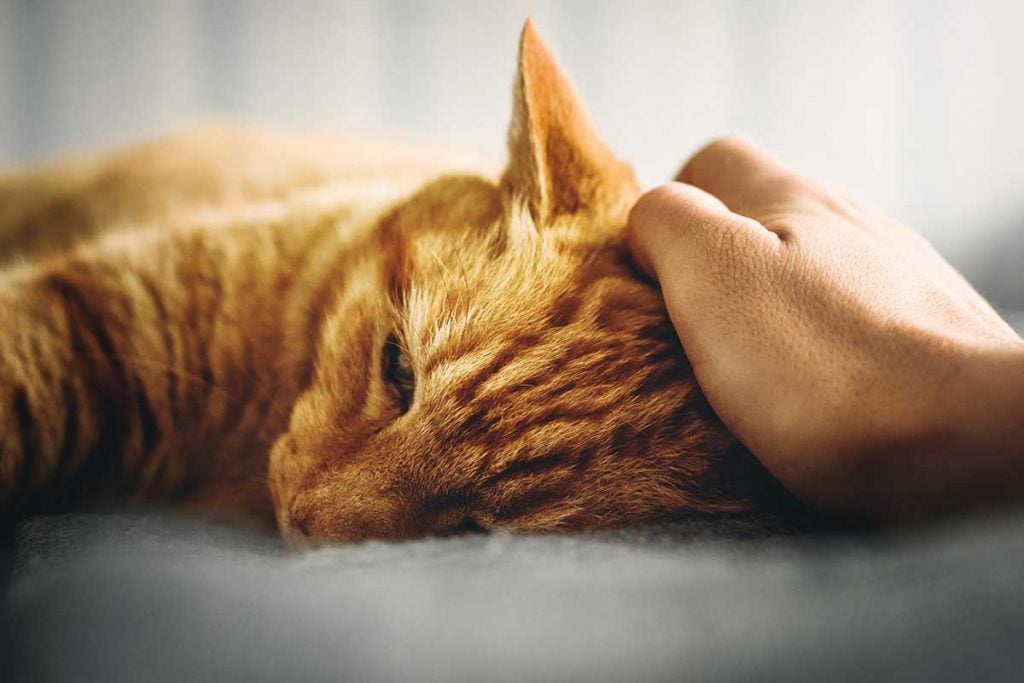A loud boom rattles the house and your cat is cowering under the bed, shaking with fear. They may be a usually calm, playful or confident cat, but the bangs and wizzes of Bonfire Night—or any other celebration which calls for fireworks—turns them into a quivering mess. Fireworks can be terrifying for a cat. Read on to find out more about how cats react and what you can do to help your kitty this fireworks season and beyond.
When cats are scared, their survival instincts kick in. They might hide, urinate in places they’re not supposed to, scratch, hiss, or vocalise their frustration.
There’s also a risk that a cat will flee or sustain injuries due to the anxiety that fireworks can cause. Cats have been known to jump from high windows, race in front of cars, or run blocks away from their homes. Some cats are injured at home from toppling furniture or chewing their skin raw. In short, fireworks and cats don’t mix.
What can you do to protect your kitty? First, you’ll need to recognise the behaviours that signal your cat is stressed out.

iStock/Sparkle
Signs Your Cat Is Scared or Anxious
According to PetMD, your cat may exhibit the following anxious behaviours when they are frightened:
- Trembling
- Hiding
- Excessive vocalisation (meowing, hissing, shrieking, etc.)
- Excessive grooming
- Trying to escape
- Destructive or aggressive behaviour
- Heavy, open-mouthed breathing
- Failure to use the litter box
- Diarrhoea
7 Tips to Help Your Cat Cope with Fireworks
Fortunately, there’s quite a bit you can do to help your cat get through this year’s fireworks, whether it’s on Bonfire Night or New Year’s Eve.
1. Prepare your cat to deal with loud noises
Dr Marty Becker (aka ‘America’s Veterinarian’) recommends preparing your cat for the noise ahead of time by exposing them to low volume recordings of fireworks (Becker recommends searching on YouTube), then giving them praise and treats for staying calm, to associate the noise with good things.
PetMD adds that desensitisation and counter-conditioning are the most effective way of handling fear, phobia, or anxiety. By exposing your cat to loud noises and providing them with a rewarding stimulus, they learn not to be afraid of the trigger event.
2. Create a safe space in your home
When cats are scared, they like to hide in a safe, dark place. If your cat has a favourite hiding spot or is crate-trained, fill their safe place with comfortable blankets and bedding to ensure they feel secure. Include their favourite toys or other distractions. Be sure to include a small litter box if their usual box is at the other end of your home.
You can also stay in the same room with your cat. Close the windows, pull the curtains or blinds, turn on a fan, and then snuggle up together. Mask the sound of the fireworks as best as you can with white noise, gentle voices, or soothing music.
Try not to leave your cat alone during the fireworks, but don’t feel you have to touch or hold them if they aren’t comfortable with that—they might be happier under the bed or in a closet. Expect them to head for their favourite safe space, and you can hang out nearby.
3. Prevent your cat from escaping
Noisy fireworks and other celebrations can startle cats and cause them to run away. If your cat is usually an outdoor cat, secure them in an internal room so they cannot escape from a door or balcony if they are scared. Be extremely careful when opening doors; make sure your cat is secured and, if you have guests over, make sure they know how quickly your cat could dart out when the door opens.
Check screen windows to make sure your cat can’t claw or push the screen loose. Panicked cats have been known to pry flimsy screens loose and topple out of windows.
As always, make sure your cat has an updated name tag on a properly fitting collar and is microchipped. If you’ve moved recently, take a few minutes to go online or get on the phone to update your contact information in the microchip database.
4. Distract your cat with sounds and games
Distraction can be the key to making sure your cat doesn’t get too upset with the fireworks. Keep windows closed to muffle the noise of explosions and close the curtains before the fireworks start; the flashes of light might startle your cat, too.
Once the night has arrived, turn the TV on and the volume up. Cats are used to hearing sounds come from the TV and it can help calm them down.
If you’re not watching TV, turn on classical music (which seems to help calm animals). You can also turn on a fan or the air conditioner to muffle outside sounds.
Cats love to play and hunt. If you’re feeling creative, create a fun kitty ‘treasure hunt’ with small dishes around the house. If they aren’t up for a game, try a new toy. Or, if your cat responds well to catnip, that’s another option.

sdominick/iStock
5. Stay calm
Encourage your cat to stay calm by acting calm yourself. Don’t punish your kitty for their fear or anxiety, as this will only increase their stress.
While some cats will want to be held or cuddled, avoid holding a frightened cat against their will to calm them. Instead, let them come to you. Trying to keep hold of a panicking cat can result in injuries to you and the kitty. Stay calm, and follow your cat’s lead when it comes to interaction.
6. Explore medication or alternative therapy
If your cat has had an extreme reaction to fireworks or loud noises in the past, check in with your vet. They might want to prescribe anti-anxiety medication or sedatives.
There are a few alternate routes you can take if your pet is still struggling with fear during fireworks. Some pet owners swear by calming collars. They contain pheromones, which appear to make cats feel more secure; pheromones also come in spray versions.
A compression jacket like the ThunderShirt calms many cats by making them feel hugged and held securely. Temple Grandin, professor of animal sciences, researched this method and discusses it in her book Animals Make Us Human. Dr Grandin advises putting the wrap on for 20 to 30 minutes, removing it for a similar period, and then putting it back on.
7. Schedule your cat sitter
If you plan to be out of town when fireworks are planned, this might be a good time to have a cat sitter who can check regularly on your cat’s health and safety.



